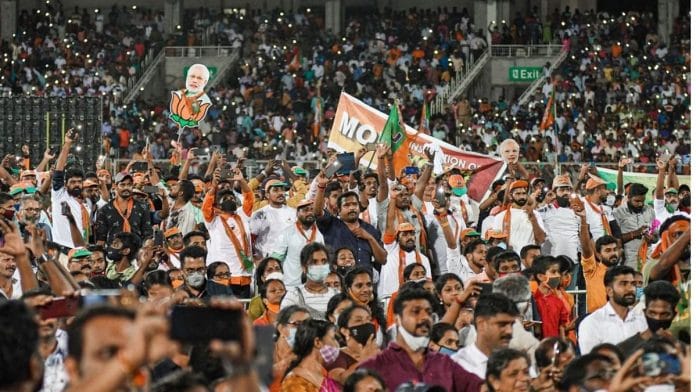Thank you dear subscribers, we are overwhelmed with your response.
Your Turn is a unique section from ThePrint featuring points of view from its subscribers. If you are a subscriber, have a point of view, please send it to us. If not, do subscribe here: https://theprint.in/subscribe/
During the recently concluded Lok Sabha elections, we have often heard the term anti- Incumbency. The term gained credence over the last two decades. Anti-Incumbency is the sentiment of voting out incumbent politicians. Often anti-Incumbency is being used in a destructive manner to meet parochial ends.
Let us first understand why the sentiment of anti-Incumbency develops. After getting elected, the elected representatives somehow lose the connect with the voters, more importantly with party workers who toil to get them elected. This basically results from the inaccessibility of the elected representatives. As a result, the issues of the voters fail to get addressed. The voters basically require a proper channel to approach their elected representatives to address their issues. But unfortunately, most of the political parties do not have a proper structure to tackle this issue.
All the political parties need to monitor the performance of their MPs & MLAs by providing them a proper structure incorporating the latest technology to increase the voter connect. Every ward in the constituency should have a dedicated office manned by responsible people to address the voter issues, which should be recorded & monitor the steps taken to solve the same. Towards this end, latest communication technology should be deployed to get the desired end results. The MPs should coordinate with the respective MLAs in their Lok Sabha constituency to resolve all the issues addressed to the ward offices. Even if the MP & MLAs belong to opposing political ideologies, it is incumbent upon them to coordinate in this issue.
Based on the performance in the above parameters, political parties must evaluate the performance of the elected representatives once every six months & initiate the required corrective action. In this manner, a genuine attempt can be made to monitor & enhance the performance of the elected representatives. In case the MP/MLA faces any obstruction due to party politics, he or she will not be unnecessarily blamed if this system is implemented. This system will also help in assessing the performance of elected representatives in a scientific & rational manner before concluding whether the local MP/MLA is facing anti-Incumbency. It will also put an end to the so called motivated & biased internal surveys each political party conducts to track anti-Incumbency. This is exactly the tactic resorted to by the ruling party in the recently concluded Lok Sabha elections to deny tickets to politically inconvenient candidates.
The above measures will go a long way in strengthening participatory democracy in India.
These pieces are being published as they have been received – they have not been edited/fact-checked by ThePrint.


